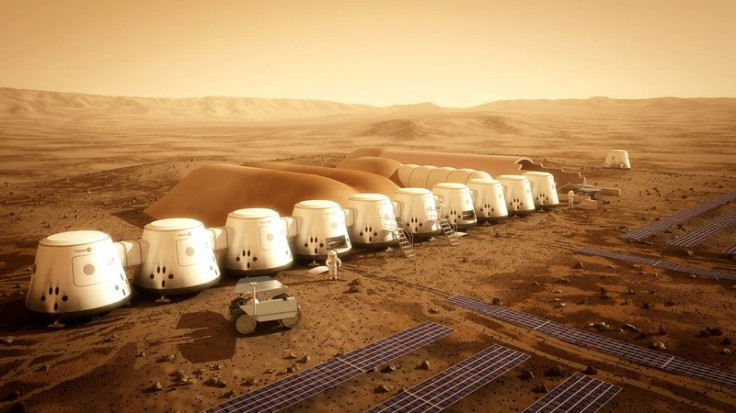Mars One To Launch Earth-Based Simulation Of The Red Planet, Training Ground For Future Astronauts

Mars One, the not-for-profit foundation that is planning a manned mission to Mars, has announced it will construct the first simulation outpost on Earth. The project is in the development stage but joins other Earth-based efforts to simulate conditions of the Red Planet.
Mars One said the construction of the simulation outpost will be led by Kristian von Bengtson, a former NASA and European Space Agency contractor. Von Bengston has 15 years of experience and previously worked on interior space design for the two space agencies; he will serve as the "outpost and capsule project manager."
Mars One co-founder Bas Lansdorp said in a statement, "Mars One is now entering phases were hardware must be produced to begin training of our selected astronauts." The location of the first simulation outpost has yet to be determined, but Mars One plans on using the locations to train and prepare selected astronauts for the Martian environment. Additional outposts will be built in the near future and will be fitted with life support systems.
Von Bengston said, "Finally getting started on the outpost project is incredibly exciting, and I am looking forward to replacing images with real-life hardware. I think a lot of people are looking forward to opening the hatches of the outpost modules and taking the next step in the mission. I know I am."
According to Mars One's timeline, the first group of 1,058 astronauts were chosen, from a pool of 200,000 applicants, in December 2013. Interviews and a medical assessment will whittle the group down further before the third round. The next round will be a regional competition with groups of 20 to 40 candidates competing in challenges. The fourth round sees international groups of four candidates training at the Mars outpost by 2015.
There are other Mars simulation programs currently being conducted on Earth. The Mars Society's Mars Desert Research Station features crews of volunteers living in Utah in conditions that replicate the exteme environments of Mars.
Spanish researchers from the Centro de Astrobiología, INTA-CSIC, and Instituto de Ciencias de Materials de Madrid have created vaccuum chambers that mimic the temperature, pressure, radiation and gas composition of Mars as well as the dust that is found on the planet. The Mars Analog Research and Technology Experiment (MARTE) is testing sensors and other instruments that will be used in missions. The MARTE team, led by Jose Angel Martín-Gago, from the Instituto de Ciencias de Materials de Madrid, is currently testing two instruments, the Mars Environmental Dynamics Analyzer and the Sign of Life Detector, which will be used on NASA's Mars 2020 rover.
Following the astronaut selection process, Mars One will launch a demonstration mission as well as a communication satellite in 2018.
© Copyright IBTimes 2024. All rights reserved.












